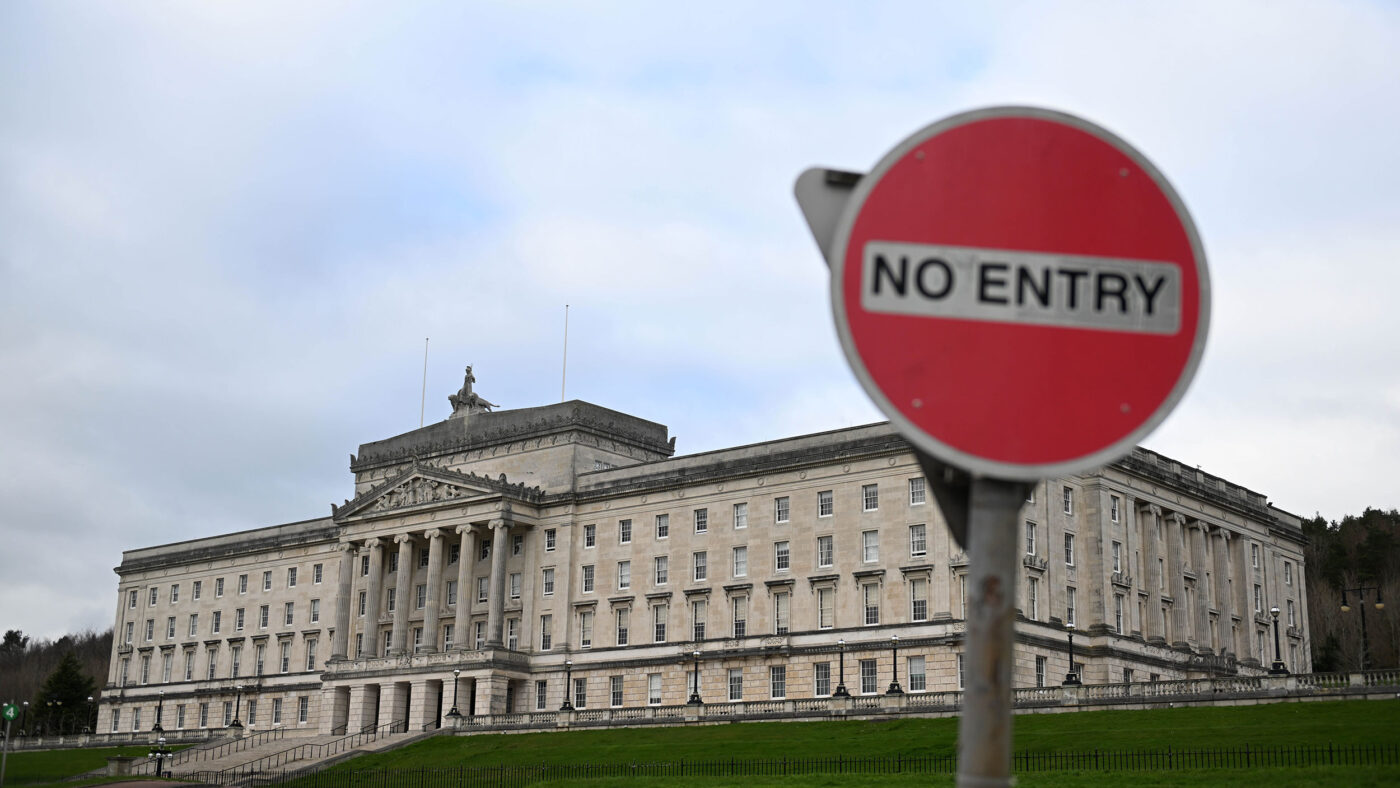For devolution to work it must be based on the consent of both unionists and nationalists and on respect for all aspects of the Belfast Agreement, which includes relations with the rest of the UK as well as with the Irish Republic.
Every proposed solution so far has elevated an open border between Northern Ireland and the Irish Republic above open trade between Northern Ireland and the rest of the UK. This approach has delighted nationalists but alienated unionists.
Theresa May’s backstop, Boris Johnson’s Protocol and Rishi Sunak’s Windsor Framework are all based on a nationalist approach to finding a solution, driving a coach and horses through the Acts of Union as well as the Belfast Agreement as amended, and leading ultimately to the collapse of the political institutions.
If a hard border on the island of Ireland is unacceptable it is equally, if not more unacceptable, to create a hard border between Northern Ireland and the rest of the UK.
Whilst the Windsor Framework made some adjustments and changes in the operation of the Protocol, it does not solve the fundamental problem.
The Protocol/Windsor Framework has placed Northern Ireland under EU laws affecting large parts of our economy. Law makers elected by the people of NI have had no vote or say on the plethora of laws affecting them. The DUP has made it clear that the Windsor Framework fails its seven tests and in the recent council elections it received an overwhelming endorsement from the unionist electorate for its stance. The seven tests are reiterations of pledges and commitments made by Prime Ministers to the people of Northern Ireland.
It is now acknowledged that Sunak massively oversold the Framework. Meanwhile the current Secretary of State for Northern Ireland has no credibility or leverage with any of the local parties, having shown little understanding of the basics of politics here.
So what must happen? The failed approach of successive governments must give way to one which emphasises a solution to the original problem. Avoiding unnecessary checks at the border between Northern Ireland and the Irish Republic can be achieved without the subjugation of the province to EU sovereignty. Avoiding a so-called hard border on the island of Ireland does not require the Protocol/Windsor Framework. In fact, its replacement is the only means of restoring the political institutions.
There is a way of maintaining an open trade border on the island of Ireland and of avoiding the constitutional vandalism of subjecting Northern Ireland to foreign laws without consent, while at the same time ensuring the EU Single Market is protected.
That is the concept of mutual enforcement, whereby the UK and the EU enforce each other’s rules in respect of goods being traded across the border, as set out in a new report by the Centre for Brexit Policy.
Such an approach would solve most of the fundamental problems unionists have with the Windsor Framework whilst reassuring nationalists that there would be no checks or barriers between north and south. Crucially EU law would not have to be imposed on NI and the injury currently being done to the Belfast Agreement and the Acts of Union would disappear. The Single Market would also be protected.
Devolution could be restored on such a basis with the likelihood that such a stable arrangement would give rise to few shocks in the future – something that is baked into the Windsor Framework. The current Framework cannot be the basis for restoration of devolution. It will inevitably lead to future crises due to the emergence of new and urgent issues as divergence widens between the EU (and Northern Ireland) and the rest of the UK.
Of course, for mutual enforcement to work requires a willingness on the part of the EU to recognise the unique and delicate political balance in Northern Ireland. Crucially it must recognise that leaving one side of the community in NI permanently alienated and with no aspect of political institutions working properly is the antithesis of their professed objective of upholding the Belfast Agreement.
The solution exists. And the Centre for Brexit Policy paper on Mutual Enforcement demonstrates how it can work. It can restore devolved government at Stormont. The question is whether the political will is there to make it happen.
Click here to subscribe to our daily briefing – the best pieces from CapX and across the web.
CapX depends on the generosity of its readers. If you value what we do, please consider making a donation.


